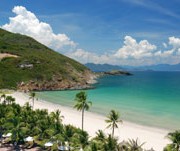Top 10 language and activity courses for the winter months
For anyone already very accomplished and passionate about the activity that they choose, these courses offers a great opportunity to meet like-minded people and learn how those from different countries and cultures view and appreciate the sport/hobby. Not only this, you will have the great satisfaction of being able to talk about your activities in a foreign language…
When the days are short and spring still a long way off, here’s our pick of courses that will help quell those winter blues!
1. French and skiing in Annecy, France
If there’s nothing that puts a smile on your face quite like gliding through the great outdoors with the sun on your face and the powder at your feet, why not opt for a French and weekend skiing course in Annecy. Studying here – one of Haute-Savoie’s finest spots – will give you access to the slopes, the shops and some of Savoie’s finest gastronomic delights.
2. Spanish and photography in Jaco Beach, Costa Rica
There can be few better places on the earth for a photography course than Costa Rica – its bright colours and stunning landscapes can’t fail to produce amazing photography, whether you’re the next David Bailey, or your photos are limited to disposable cameras at the annual Christmas party.
3. Spanish and kitesurfing in Sosua, Dominican Republic
The Dominican Republic remains one of the most popular tourist spots in the Caribbean, and with good reason. It offers great weather, affordable prices and fantastic watersports options. Anyone who prefers to be in the water rather than beside it would do well to try their hand at the exhilarating sport of kitesurfing – once you start you’ll be hooked…
4. Spanish and diving in Playa del Carmen, Mexico
Playa del Carmen in Mexico pretty much embodies the exact image of a tropical paradise. What else is there to say? The clear blue waters offer an absolutely prime dive location that will simply leave you pining for more.
5. Italian and cookery/wine tasting in Bologna, Italy
Italy has long been recognised as a producer of some of the finest food and wine in the world. Anyone opting for this course will benefit not only from learning more about how the food and wine is produced, and how properly to appreciate it, but will also have the privilege of spending a week or two in one of the most fascinating and hospitable countries in the world.
6. French and hydrotherapy in Vichy, France
After the over-indulgences of Christmas and New Year, most people feel in need of a serious de-tox. How many of us actually manage it? Well, let’s not go into that…but booking yourself into a hydrotherapy course can’t fail to have the desired effect, as long as you resist the temptation of a bottle too many of Beaujolais along the way!
7. Portuguese and samba in Salvador de Bahia, Brazil
What better way to get a sunkissed smile back on your face and a spring in your step than to do a Portuguese and samba course in Salvador de Bahia? An absolutely perfect antidote to the grey skies and the winter sniffles…
8. Spanish and surfing in La Laguna, Tenerife
The Canary Islands offer a fabulous option for anyone after a bit of sun without the long-haul flight. Tenerife is one of Europe’s hottest and liveliest surf spots and a week of Spanish, surfing and sun will leave you full of energy and raring to go again.
9. Italian and golf in Taormina, Italy
If Italian and golf are both your ‘bag’, heading to Siciliy to work on your handicap will be a great way to while away a winter week. How novel it will be to head to the fairways without three layers of clothes and a flask of tea!
10. English and surfing in Honolulu, Hawaii
Anyone hoping to improve their English has a huge range of options to choose from worldwide. Surely though, this has to be one of the best ways and locations to practise? With temperatures of around 25 degrees centigrade, a few weeks in Honolulu might just-about be do-able…

